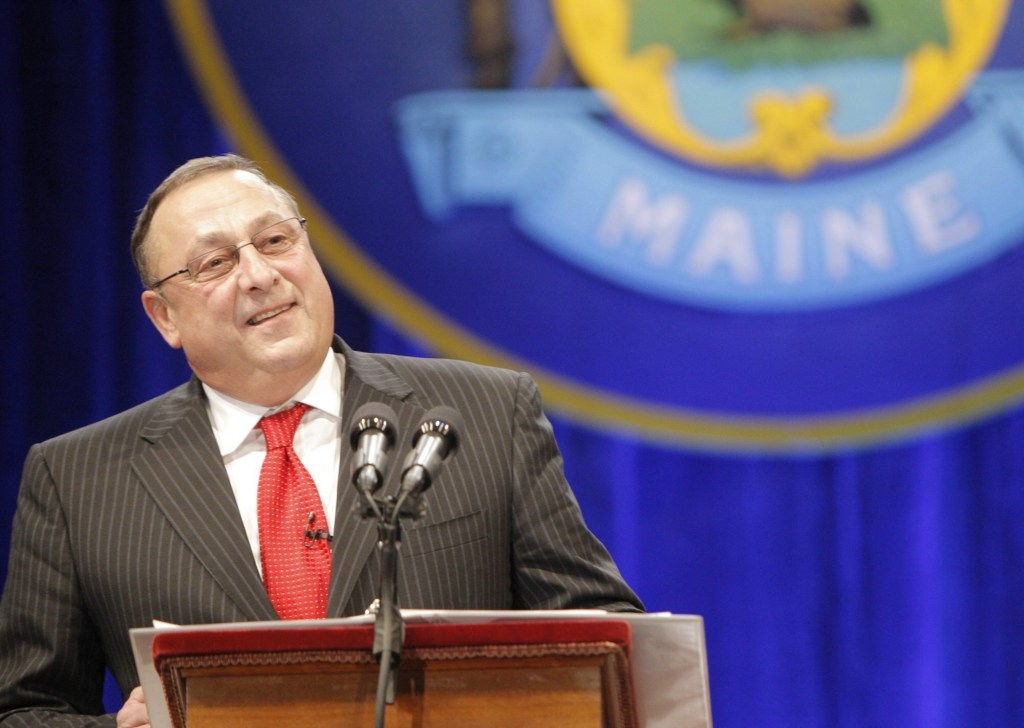Maine voters strongly support proposals on Tuesday’s ballot to borrow millions of dollars for education, transportation and water projects, according to a statewide tracking survey by Critical Insights of Portland.
That may reflect the poll’s finding that Maine voters are feeling more hopeful about the economy, or at least more confident that things won’t get worse in the coming year.
The poll results also show, once again, that Gov. Paul LePage remains a polarizing figure, two years after his narrow election.
LePage was cited as the top reason why 42 percent of the voters surveyed think Maine is headed in the right direction. He also was cited as the top reason why 40 percent of voters said the state is on the wrong track.
Critical Insights conducts polls of statewide opinion on politics, the economy and other issues each spring and fall. It asks questions for private clients and includes other questions of public interest for reports it releases to the media.
The firm interviewed 615 likely voters statewide by telephone Oct. 21-25. Results were weighted to reflect voters’ demographics. The results have a margin of error of 4 percentage points.
The poll suggests that Maine voters will continue their long tradition of supporting bond proposals.
Support is strongest for a $51.5 million transportation bond, which would pay for improvements to roads, bridges, airports and ports. Seventy percent of those surveyed said they plan to vote “yes,” while 25 percent said “no.”
Respondents said they support a proposed $11.3 million bond for upgrades in the University of Maine System, the Maine Community College System and Maine Maritime Academy. Supporters of that proposal outnumber opponents 53 percent to 40 percent, according to the poll.
And 63 percent of voters said they favor a $7.9 million bond for drinking water and wastewater treatment facilities, while 31 percent said they plan to vote “no.”
A fourth bond proposal on the statewide ballot seeks approval to borrow $5 million for land conservation. Critical Insights did not release the results on that question because it was one of the privately sponsored sections of the poll.
Support for bonds, especially for road and bridges, is no surprise in Maine.
“These do tend to be popular,” said Amy Fried, a professor of political science at the University of Maine. “I think it’s a combination of (wanting) better roads, promoting economic development and providing jobs.”
Mainers continue to see the economy as their biggest concern, according to the poll. At the top of the list of economic worries is the cost of gasoline, heating oil and utilities, voters said.
On the other hand, Mainers have begun to feel more hopeful about the economy, according to the poll.
Twenty-four percent of respondents said they are concerned that someone in their household could lose a job in the coming year. That is down from 29 percent a year ago and 31 percent two years ago.
For the first time in 12 years of surveys, more voters said they are better off than they were a year ago (35 percent) than said they are the about the same (33 percent) or worse (31 percent).
And 41 percent of voters said they believe the economy will be better in the coming year, while 10 percent said they believe it will get worse — the biggest optimism gap in 10 years.
“Those findings are very consistent with national surveys on consumer confidence,” said Charles Colgan, an economic forecaster and professor at the Muskie School of Public Service in Portland.
At the national level, confidence is showing up in increased home sales, for example. “They feel comfortable enough with their incomes or job situations to commit to a new house,” Colgan said.
One reason for the optimism, Colgan said, is that the headlines of mass layoffs have faded. “People are feeling much less threatened that they are going to lose their jobs, even if we’re not gaining a lot.”
Another reason is that Congress went on recess so headlines about the federal debt crisis were replaced with presidential candidates promising to make things better, he said.
Despite the optimism about the economy, only 38 percent of Maine voters said they feel the nation is going in the right direction, while 53 percent said they feel it is on the wrong track. Those who said the country is on the wrong track cited the economy and dysfunction of Congress and government as the biggest reasons.
Slightly more respondents said Maine is on the right track than the wrong track — 42 percent to 40 percent.
Whether voters say Maine is headed in the right or the wrong direction is linked closely to their opinion of LePage. The tough-talking, uncompromising Republican governor was cited as the top reason for their answer, whether voters liked Maine’s direction or not.
LePage’s approval rating is at 42 percent, according to the poll, with 47 percent of respondents saying they disapprove of the way he is handling his job.
The polarized opinions may help explain why LePage has kept a relatively low profile during the fall campaign for control of the state Legislature.
Staff Writer John Richardson can be contacted at 791-6324 or at:
jrichardson@pressherald.com
Send questions/comments to the editors.


